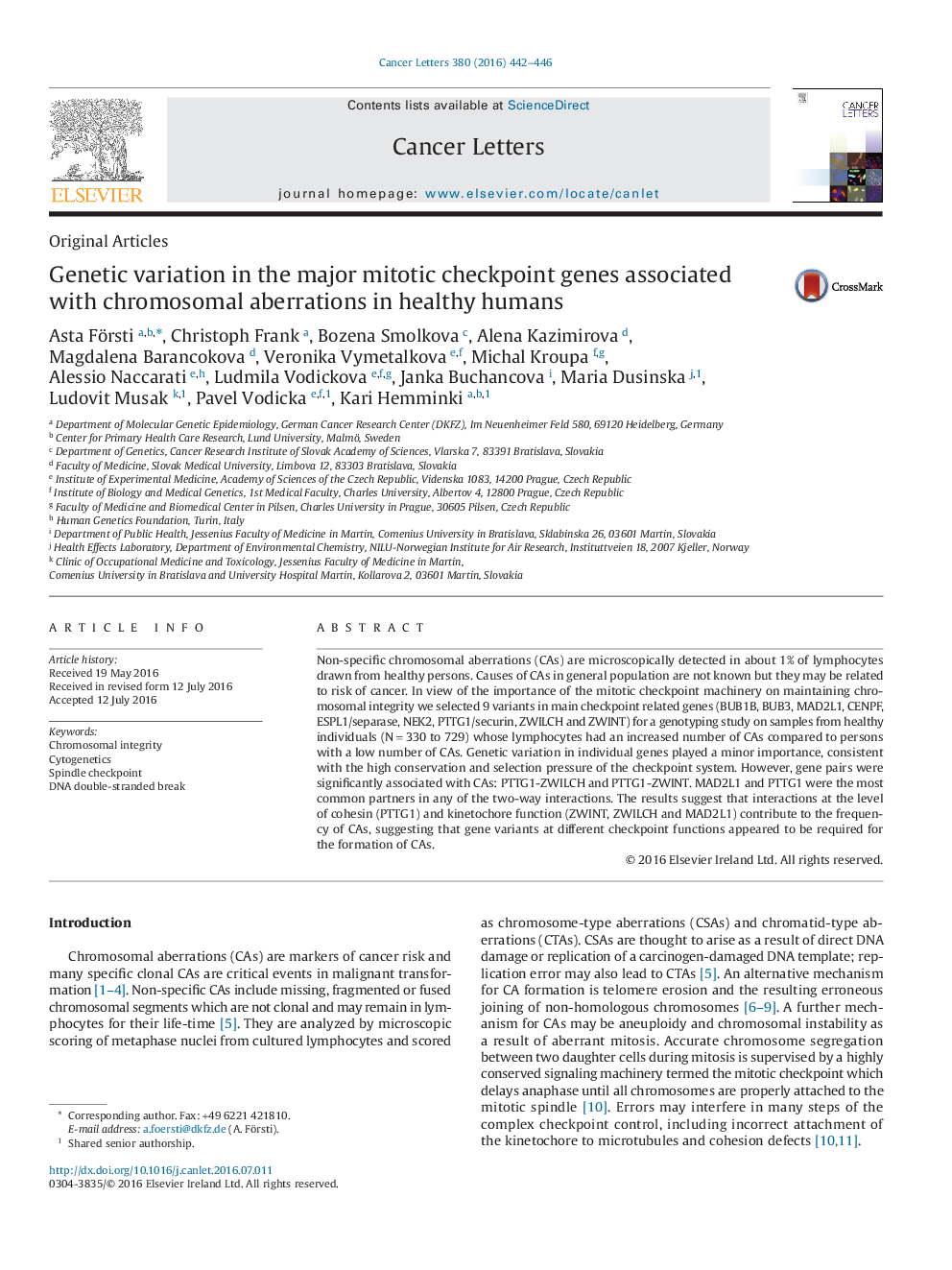| Article ID | Journal | Published Year | Pages | File Type |
|---|---|---|---|---|
| 8435228 | Cancer Letters | 2016 | 5 Pages |
Abstract
Non-specific chromosomal aberrations (CAs) are microscopically detected in about 1% of lymphocytes drawn from healthy persons. Causes of CAs in general population are not known but they may be related to risk of cancer. In view of the importance of the mitotic checkpoint machinery on maintaining chromosomal integrity we selected 9 variants in main checkpoint related genes (BUB1B, BUB3, MAD2L1, CENPF, ESPL1/separase, NEK2, PTTG1/securin, ZWILCH and ZWINT) for a genotyping study on samples from healthy individuals (Nâ=â330 to 729) whose lymphocytes had an increased number of CAs compared to persons with a low number of CAs. Genetic variation in individual genes played a minor importance, consistent with the high conservation and selection pressure of the checkpoint system. However, gene pairs were significantly associated with CAs: PTTG1-ZWILCH and PTTG1-ZWINT. MAD2L1 and PTTG1 were the most common partners in any of the two-way interactions. The results suggest that interactions at the level of cohesin (PTTG1) and kinetochore function (ZWINT, ZWILCH and MAD2L1) contribute to the frequency of CAs, suggesting that gene variants at different checkpoint functions appeared to be required for the formation of CAs.
Keywords
Related Topics
Life Sciences
Biochemistry, Genetics and Molecular Biology
Cancer Research
Authors
Asta Försti, Christoph Frank, Bozena Smolkova, Alena Kazimirova, Magdalena Barancokova, Veronika Vymetalkova, Michal Kroupa, Alessio Naccarati, Ludmila Vodickova, Janka Buchancova, Maria Dusinska, Ludovit Musak, Pavel Vodicka, Kari Hemminki,
